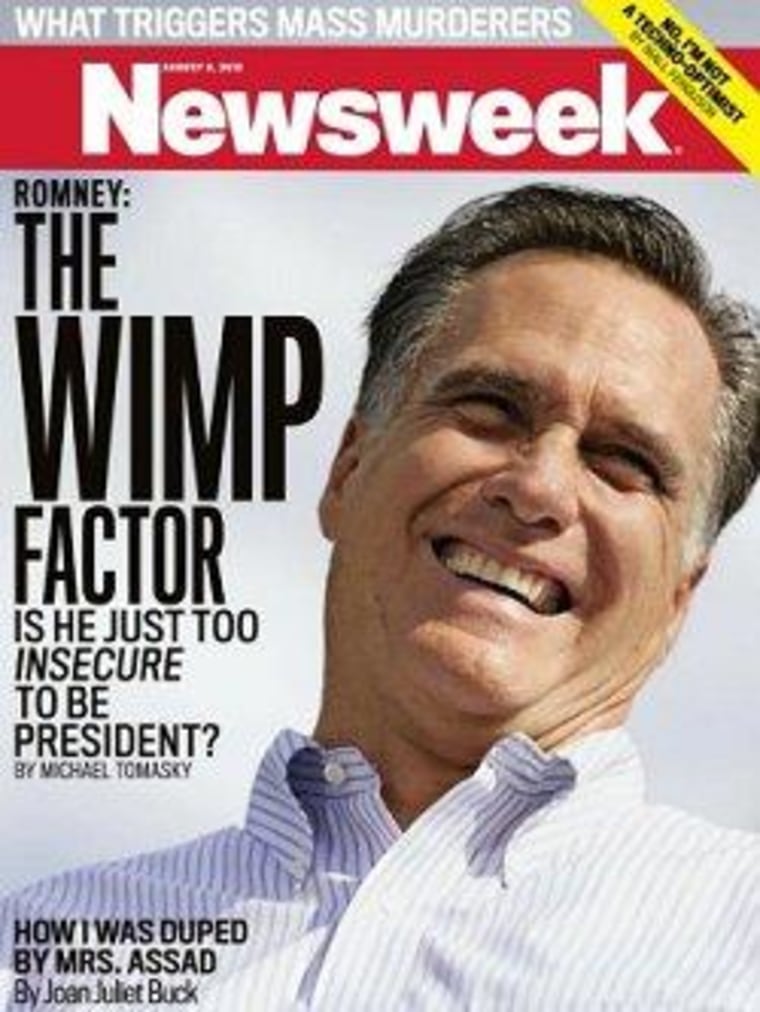Way back in March, I wrote an op-ed for the New York Daily News about Mitt Romney and the likelihood that his campaign would be damaged by cowardice. In context, this came right after Romney refused to criticize Rush Limbaugh for his attacks on Sandra Fluke.
In fact, I drew a parallel at the time -- in the 1988 race, following the Iran-Contra affair, then-Vice President George H.W. Bush was dogged by what was then called the "wimp factor." The perception at the time was that the Republican just wasn't tough enough for the job, and Romney's problem is similar, and arguably worse.
The observation is catching on. Business Week's Josh Green had an item this month on Romney's "wimp factor," and the cover story of the new issue of Newsweek, using a nearly identical headline from 1987, ponders Romney and "the wimp factor."
Newsweek's piece, written by the estimable Michael Tomasky, stresses that the one thing Romney "never does" is "man up, double down, take his lumps." It's this inherent weakness, Tomasky argues, that explains Romney's remarkable flip-flops on practically every issue under the sun -- the candidate lacks the courage to stick to his convictions.
Indeed, there's an unmistakable pattern that underscores Tomasky's thesis -- as we've discussed before, Romney's afraid to offend conservatives; he's afraid to push back against extremist rhetoric; he's afraid of the religious right; and he's afraid of Limbaugh.
In terms of campaign strategy, Romney's afraid to release his tax returns because he thinks Democrats might be mean to him, and he's also afraid to disclose his bundlers because he worries sunlight may scare his wealthy benefactors away.
On a purely substantive note, the GOP candidate is also clearly afraid take a firm position on key issues -- he'll give us some general platitudes on taxes, immigration, spending priorities, and international affairs, but if voters want specifics, they're expected to vote for him first and get details later.
Leadership requires some modicum of courage -- a character trait the Republican presidential hopeful appears to lack. Here's hoping the Newsweek cover sparks a larger conversation.
